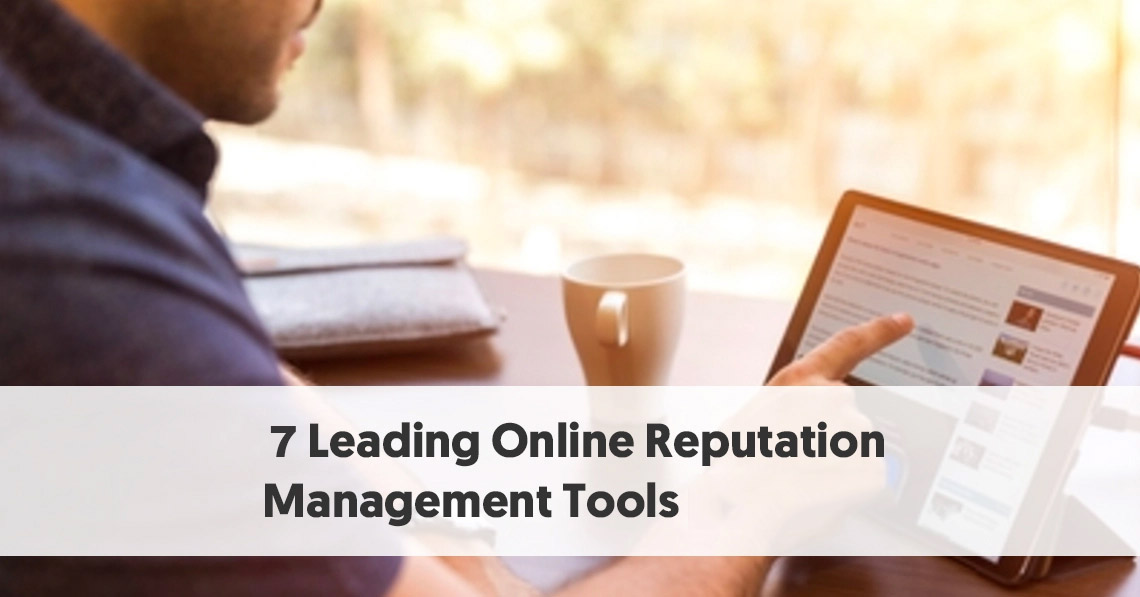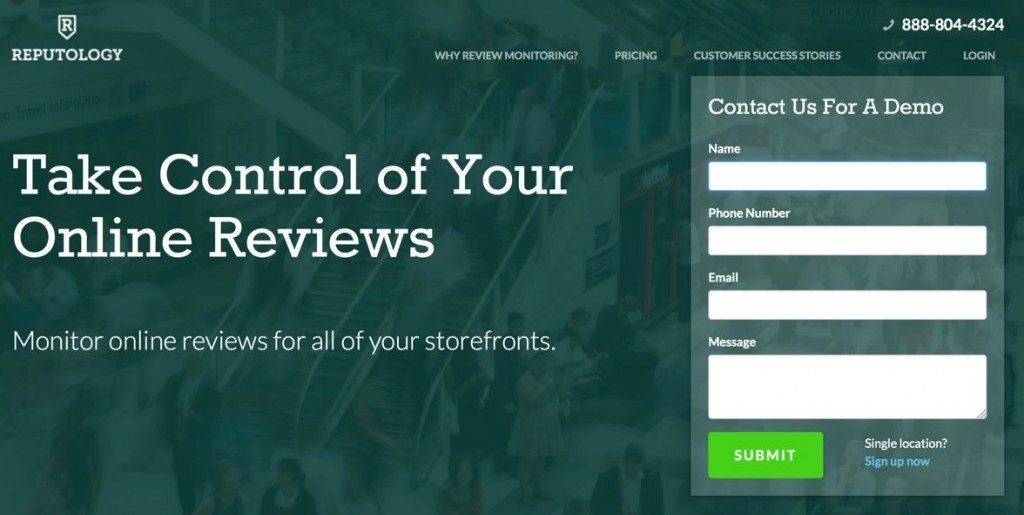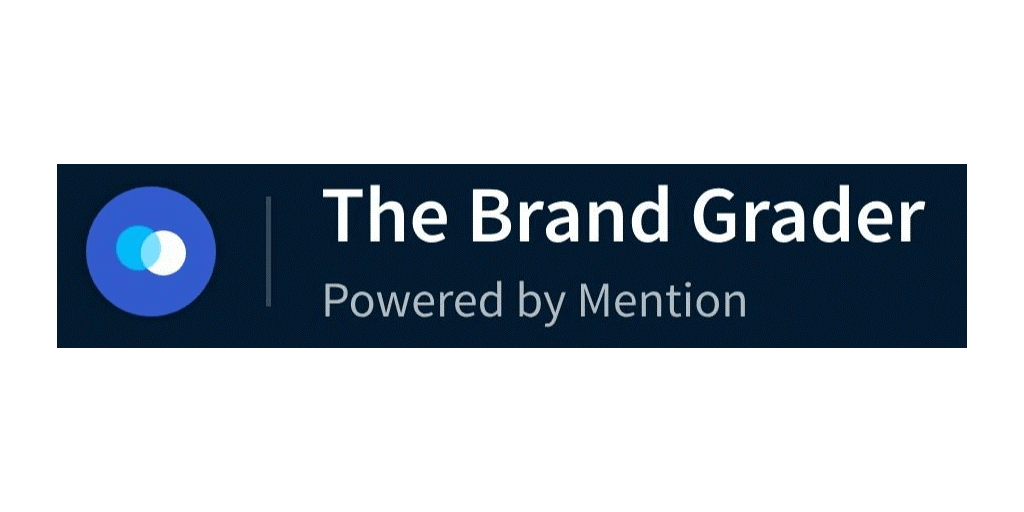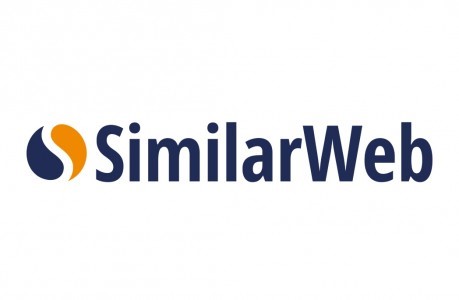-
Get Cloud GPU Server - Register Now!
Toggle navigation

All the online channels form a stage,
And all brands are merely players,
They have their exits and entrances,
And a brand plays a key part in a consumer’s life,
Their actions monitored by online reputation management.
A little deviation from Shakespeare’s As You Like It, but it still holds true for several online brick and mortar stores. Brands play an integral role in a consumer’s life, and they prize their online reputation more than anything else.
The truth is, brands cannot afford any harm or spite to their online reputation.
Why so, you ask?
Because, businesses risk losing 22% of potential customers due to a negative article, comment, or review.
More importantly, if such dissenting information presents itself on the first page of SERPs.
So, how can you manage it and make sure your current and prospective customers enjoy a safe landing at your e-commerce store?
The answer is Online Reputation Management.
Quite precisely., there are online reputation tools that help you take the reign into your hands, improve your online standing, and reduce the number of negative reviews. Irrespective of your brand’s genre, online reputation management is a must, something that you cannot ignore.
Defining online reputation., ORM involves marketing positive content about your brand on online channels and managing contravening content.
Let’s understand it with an example.
How do you buy products online?
Well, you Google the product online, research about it a little bit, read as many reviews as you can, browse through the latest product updates, review the stars achieved by a product, assess its approval on social media, and then buy it. Also, you will keep a note of all the top influencers endorsing the product.
This process repeats itself for all those billions of customers investing in anything new, including entertainment, education, lifestyle, beauty, technology, and more.
Now think about what would happen if the comment box about your product floods with negative comments!
Will anyone like to buy it?
Obviously, they won’t. It means your online reputation did not just cost you sales and revenue, but the trust of your consumers and a fruitful relationship you could have built with them if only you monitored what’s being said about your brand online.
That is the real importance of online reputation management.
Amiable ORM tactics translate to a boost in sales, ROI, revenue and constructs a trustworthy relationship with your customers.
ORM provides more than brands can ever ask for!
It is no wonder that everyone uses the internet to access, review, and share information. More so, over 86% of consumers read reviews about a business. Another 84% trust online reviews as much as personal recommendations. And lastly, 89% of consumers read your response to reviews, especially negative ones.
Long story short, online reputation management is more of a necessity than a luxury. And the only way you can ease the process is by utilizing the various online reputation management tools available and leverage them to achieve better stardom in the realms of online business.
Coming back to the question, do you really need online reputation management tools?
On average, thousands of customers interact with your brand, and hundreds of them post reviews online. More importantly, if you are into the e-commerce business, then the risk is even higher. That said, it is impossible to respond to every review online, even if you hire an online reputation management company.
Enter online reputation management tools!
They not only alert you about negative reviews but monitor the sentiment around your brand, report what a customer’s persona is, and encourage positive messages. Moreover, such tools emphasize positive content about your brand online and resolve negative ones.
Now that you’re clear about the various benefits of online reputation management., let’s see which tools can help you facilitate and automate e-commerce operations.

If you’ve been googling the top online reputation management tools, you might have come across several articles crowning Awario as the best contender. The truth is, it is one of the most reliable ORM tools in the market, hence its popularity and position.
Quite precisely, Awario is a social listening tool that makes it easy for you to manage your online reputation. The platform performs sentiment analysis, breaking down every review into a positive, negative, and neutral. It also analyzes how the sentiment changes over time and what points do you need to address. And then, of course, you get all complaints, questions, reviews, listings, and blog posts in one place. More so, it assists you with copyright infringement and people stealing your content.
Awario also alerts you about mentions like compliments, questions, complaints, and any future social media crisis. It helps you process all the necessary data trends, collaborate with the biggest influencers, and improve brand value. Employing this tool, brands can observe their online reputation, strategize the best marketing campaigns, sport social media crisis, and attend to negative reviews diligently, in turn, drive more conversions, sales, and revenue.
On the other hand, Awario helps you with competitor analysis., allowing you to learn from their mistakes. You can even compare brand mentions in terms of sentiment, reach, likes, comments, etc., and conclude whether you’re winning or losing the race.

Another online reputation management maestro., Reputology is a perfect investment for small businesses who wish to collect all their reviews from Google, Facebook, Yelp, etc., in one place. Reputology tracks your reviews, feedbacks, comments, etc., and accumulates them on one dashboard. Since it is local-specific, this tool works wonders for local businesses irrespective of their business genre. It also allows a multi-location enterprise to segregate data as per their location and keep it in the respective dashboards. Therefore, brands can figure out which place does better than the other and how to improve your brand’s overall reputation across all channels.
You can reply to all the reviews from this platform, addressing negative reviews as and when they come. Reputology sends notifications whenever there is a new review. Moreover, like Awario, it also performs sentiment analysis of the unstructured data collected from feedbacks to derive actionable results.
The best feature of this tool is its integration with Hootsuite. It allows the monitoring and management of all reviews under the same roof, making online reputation management super easy.

Mention isn’t just any other social media monitoring tool. It allows brands to monitor over 1 billion sources daily, including social media, forums, blogs, comments, brand mentions, and the rest of the web. That means Mention lets you know about people all around the world talking about your brand. It allows brands to find their mentions on the online channel easily. You can even use Boolean alerts to market research more about the brand, competitors, and customers.
Through this tool, you can observe your online reputation on the dashboard at any time. The tool email you when there is a spike in brand mentions or any review that needs urgent attention. You can customize alerts and adjust your tactics to derive more success and fewer failed campaigns. Its easy-to-use interface keeps you on your toes when someone specifics your name, image, or target keywords.
Then again, there are different plans available to help you review your brand’s online image on the Web, Desktop, iPhone, or Android.

If you want to manage, monitor, and grow your online reputation, then Brand Grader is one tool that can help you with all the information you need to know about your brand’s performance. It is pretty easy and straightforward to use. All you have to do is enter the name of your brand and its email id, and The Brand Grader will send you a report concerning its reputation.
This report covers details about the last seven days. It includes:
The best part about this tool is that it was build using Mention. Hence, it uses the database to find conversations around your brand. Moreover, its free availability attracts more marketers.

It offers web analytics services to businesses. This tool provides you with competition analysis, website traffic volumes, referral sources, keyword analysis, keyword demographics, time on site, bounce rate, page views, and other features.
Its comprehensive reports offer a wealth of insights about your website: the digital face of your business.
The best aspect of this online reputation management tool is its detailed comparison with competitor sites. It predicts insights about the industry and how well your brand is respected within the niche.
SimilarWeb extrapolates data from a web user panel that allows them to monitor their online activity, driving direct observations for website traffic. Moreover, in 2019, it claimed to horde the world’s bulkiest panel consisting of a hundred million users.
![]()
It does what its name implies. Review Trackers track customer reviews across sites, sources, and all other areas of the web. The platforms include hundreds of review sites like Google Reviews, Facebook, TripAdvisor, Instagram, Grubhub, Foursquare, etc. This tool gathers reviews from all platforms on the dashboard, and then you can select which ones to reply to and which ones to leave.
Moreover, it sends a corresponding report via email, keeping you up-to-date with all the brand mentions and reviews. The tool analyzes for positive and negative keywords in reviews, detailing compliments and complaints.
ReviewTrackers also allow to perform competitor analysis and understand their strongholds and weaknesses. You can even compare your brand with its enemies through competitor analysis. With this tool, you can manage your e-commerce reputation from every location, collect business reviews from popular sites, gain deep insights about customer experience, and employ reviews as weapons.

Different than the other tool listed, it provides insights into the brand content trends across social media platforms, news articles, and blogs. That means you can drain the web for any content displayed with the search term. You can even analyze why a content piece is so popular and how content can go viral.
Buzzsumo details engagement rates with each search result as well. Some popular searches cover date, B2B publishers, country, language, domain, content-type, publisher, word count, etc. You can calculate these engagement figures for Facebook, Twitter, Instagram, Reddit, and Pinterest.
The tool displays the total links received by each search term.
In simpler words, Buzzsumo is more about content analysis, detailing about engagement garnered by each article. Its best aspect is customized alert creation for tracking brand mentions, competitor mentions, content, keyword mentions, backlinks included, and more. You can even set a minimum engagement value to receive an alert and how often you want to receive these alerts.
There are more than a hundred online reputation management tools in the market. But these are the best amongst the lot. E-commerce enterprises share borders with bad reviews, cart abandonment, losing customer interests, competitors, and delivery-related issues. That is why you must invest in online reputation management; to move past these complaints, address issues, impress customers, and facilitate positive brand mentions.
Have you employed any online reputation management tool for your business? Do let us know in the comment section below.